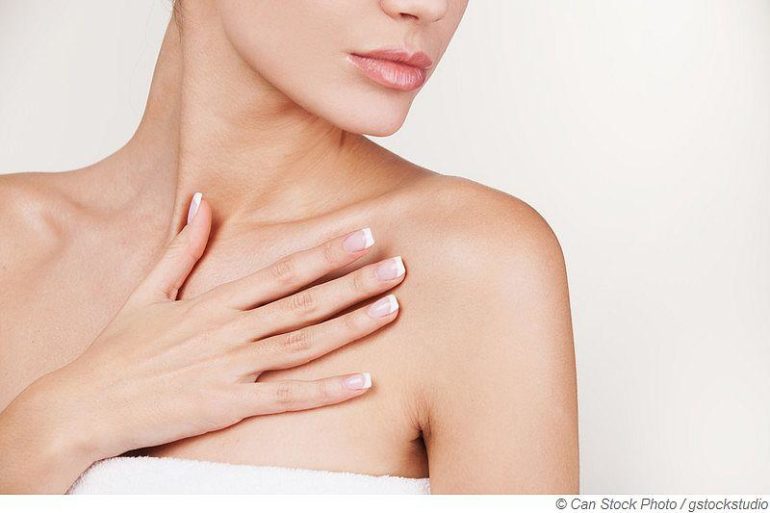What to do for dry and rough skin?
Not all people have naturally soft baby skin. Especially in the cold season, it becomes noticeable. The rough, dry skin. In addition, the natural skin protection layer is weakened at this time of year. A bath in the infrared cabin or in the sauna can be a remedy. Find out why here.
Does sauna help against rough skin? The pleasant heat in the sauna cabin increases blood circulation to the skin. Processes of healing and regeneration can thus be promoted. People with dry, sensitive, or rough skin often wonder, and rightly so, whether a visit to the sauna is suitable for them or not.
Basically, the sauna does the skin good in any case, because the water binding capacity is strengthened and the natural acid mantle is stabilized. However, these and other beneficial effects for the skin only occur if the sauna is visited regularly, i.e. at least twice a week.
Neurodermatitis patients should follow a few rules
Those who suffer from rough skin, dry skin or neurodermatitis, for example, should follow a few rules when taking a sauna so as not to overtax the largest human organ. Rough skin can clearly benefit from regular sauna visits.
The dry heat in the sauna opens the skin pores particularly well, and slags and impurities can be removed particularly efficiently. The skin is our largest excretory organ, dead skin cells and slags detach much better through the swelling process and can be well removed in the subsequent shower.
Scientific findings on sauna bathing
The fact that the acid mantle of the skin benefits from regular sauna use has now been scientifically substantiated. Because the pH value of the skin is often clearly lower with sauna-goer, than with such persons, who never go into the Sauna. The capacity of the skin to store moisture is also promoted by the sauna, which means that people with rough skin in particular can benefit.
Protect rough skin from dehydration
While sweating in the sauna, the skin naturally loses oil. This is not a problem for people with normal skin type, but very much so for those with dry or rough skin. And that’s why rough skin needs extra rich care after a sauna visit. This is a simple way to prevent rough skin from drying out even further due to the sauna heat.
Organic for the skin
Only high-quality cosmetic products in organic quality should be used for skin care of rough skin after the sauna bath. Mainly baby care series meet these high requirements particularly well. Because predominantly the skin parameters of people with rough, dry skin and baby skin are the same.
In addition, skin baby care products are mostly free of additives, preservatives, perfume or essential oils. These additives would only put additional stress on already sensitive and rough skin. Rough skin usually has a reduced oil content and water loss is often greater compared to normal skin.
Skin care for rough skin
Sensitive skin care, i.e. baby skin products, but also creams and lotions based on shea butter or other high-quality vegetable oils are ideal for quickly restoring the natural protective function of rough skin, even after a visit to the sauna.
Care should be taken to apply these special care products as thinly as possible, but also covering the entire body skin, including the face. No greasy film remains, because the high-quality oils, applied thinly, are absorbed very quickly into the skin.
The right skin care
To achieve the desired effect, it is advisable to apply the high-quality care lotion immediately after the sauna session to the then still warm skin. Even for people with extremely rough skin, for example due to neurodermatitis or atopic eczema, a sauna visit is not always taboo.
Pay attention to relapse-free periods
In the long term, very sensitive and rough skin will definitely benefit from regular visits to the sauna, experience clearly speaks for this. Patients with rough skin caused by diseases, i.e. neurodermatitis or allergic eczema, should visit the sauna at times when there are no relapses.
Avoid sauna infusions
People with rough skin, regardless of the cause, should avoid sauna infusions. This is because rough skin often reacts very sensitively to the fragrances or other substances in the infusion liquid.
Infrared cabin as an alternative
Infrared cabins, saunas with natural brine vaporization or the bio sauna with comparatively lower temperature are also a compatible alternative for people with rough skin.
Conclusion
Sauna visits can help rough and dry skin pleasantly. They strengthen the water-binding capacity of the skin and support the natural protective function of the acid mantle. In addition, sauna promotes blood circulation in the skin, effectively cleanses impurities and contributes to healing and regeneration. However, if you suffer from neurodermatitis or sensitive skin, certain rules must be followed to avoid overloading your skin.
After visiting the sauna, it is advisable to use high-quality, organic skin care products that are free of additives and fragrances. Care products for sensitive skin and creams based on shea butter or vegetable oils can help restore the skin’s natural protective function. Apply skin care products thinly and evenly, preferably directly after the sauna session, on the still warm skin. People with extremely rough skin may also find sauna visits beneficial, but they should make sure to do them during periods when there are no flare-ups.
Those with rough skin should avoid sauna infusions, as they can trigger sensitive reactions. Alternatives to saunas are infrared cabins, saunas with natural brine vaporization or bio-saunas with lower temperatures can be a tolerable alternative.

